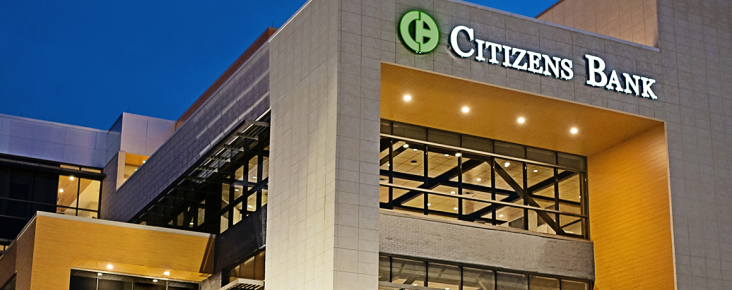Citizens Bank CEO Phil Baldwin on growth, the economy, and retirement
by September 27, 2020 10:32 am 1,501 views

Citizens Bank CEO Phil Baldwin will cap off an illustrious career in 2021 as he has guided the Batesville-based financial institution past the $1 billion mark.
Baldwin, CEO since 2013, has more than four decades of banking and financial experience. He says his successor, Adam Mitchell, is more than prepared to lead Citizens Bank into the future.
“The new generation of banking leadership is much different than the old generation, the generation that I have grown up in,” Baldwin said. “They are more inclusive and they are more thoughtful and they really do see things in a different light than the generation that I come from.
“I think that’s a positive sign for banking. I do believe that banking has to grow and adapt and evolve into something that it’s not. Technology is requiring that of us. Our customers want our products and services differently than the old generation wanted products and services. I think the generational change is also as important as the technology change. And you have to really manage that very well or you become irrelevant, and no bank wants to be irrelevant,” he said. “Adam Mitchell is the key to all of that… Adam is very bright, he’s very smart.”
COVID-19 presented many challenges to the clients of all banks. Baldwin said Citizens Bank moved quickly to follow its core mission – people first – and providing relief to its customers.
“We decided on Day One of the COVID situation that we wanted to do a couple things. One is we wanted to keep our people in our bank safe. We felt like that was our number-one priority. And then the number-two priority was that we wanted to help our customers survive, and not just barely survive, but strongly survive,” he said.
Citizens Bank made a commitment to about $100 million north of loans to defer all payments for 6-9 months.
“We wanted to do something that actually made a difference for people and families. We made a promise to our customers that we would not foreclose on any houses during that period of time and that we would not foreclose on any businesses. So, we stepped back and we used the tools that a bank has to basically say, ‘Let’s take a break on payments for awhile. You guys work on surviving and we’ll get back to normal process after all this is over,'” he said.
As for a recovery, Baldwin said he thinks there will be two tracks and he hopes the federal government does more to help small businesses.
“There’s a lot of businesses that are doing very well right now. And with them, I think, in some cases, there probably never was a downturn,” he said in reference to operations like Walmart and Amazon.
“I think when you get down into the small businesses, the family-owned businesses, especially those that are tied in with the food industry or with tourism, vacations, and things like that, I think the challenge for them is much greater. And in fact, what I’m afraid of right now is if we don’t get another PPP type of program or some type of government assistance between now and the end of this year, that you will have the silent death of these businesses. It won’t be on TV. They won’t be out fighting for their survival because they will have just given up and they will just shut down and go away,” Baldwin said.
In retirement, Baldwin, 62, and his wife, DeeDee, plan to move to Northwest Arkansas, where they have children and grandchildren. Notably, they plan to operate a nonprofit rescue horse ranch in West Fork.
“When I talk to people about it, they generally roll their eyes,” Baldwin joked. “But we’ve had this on our minds for the past four years. I have no doubt there is a real need in Arkansas. There’s not that many rescue horse ranches here. We’ll start small and see where it goes from there.”
You can watch Baldwin’s full interview in the video below.
